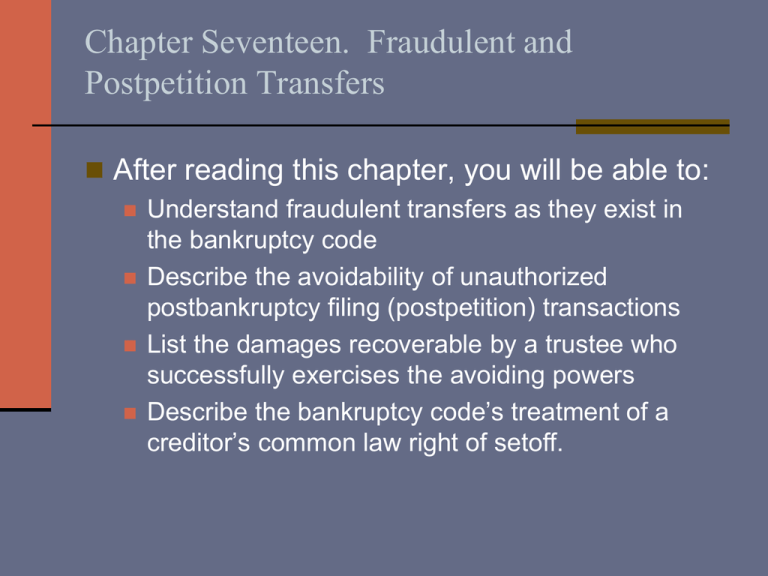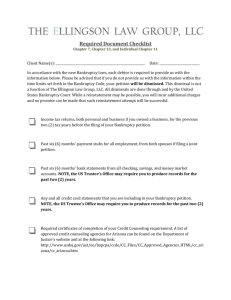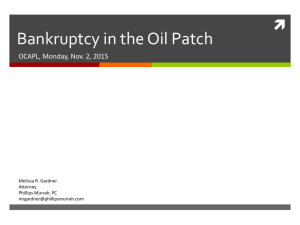Chapter Seventeen. Fraudulent and Postpetition Transfers
advertisement

Chapter Seventeen. Fraudulent and Postpetition Transfers After reading this chapter, you will be able to: Understand fraudulent transfers as they exist in the bankruptcy code Describe the avoidability of unauthorized postbankruptcy filing (postpetition) transactions List the damages recoverable by a trustee who successfully exercises the avoiding powers Describe the bankruptcy code’s treatment of a creditor’s common law right of setoff. Fraudulent Transfer A fraudulent transfer is a transfer made by a debtor with an intent to hinder, delay, or defraud creditors. A transfer without reasonable or fair consideration made while a debtor is insolvent or that renders a debtor insolvent will also be fraudulent. Fraudulent transfers are the subject of Bankruptcy Code Section 548. Fraudulent transfers are one of the trustee’s avoiding powers. Postpetition Transfers A transfer of estate property after a bankruptcy filing that is made without court approval or is not otherwise authorized by the Bankruptcy Code. An unauthorized postpetition transaction may be avoided by a bankruptcy trustee. Postpetition transactions are the subject of Bankruptcy Code Section 549. Liability of Transferees Section 550 determines the liability of a transferee of an avoided transfer. Conversely, Section 550 also defines the recovery that each party may receive. Generally, the trustee is entitled to either a recovery of the property or the value of the property. A good-faith transferee will be allowed a claim for reimbursement from the estate for an improvements or repairs made to the asset or maintenance costs expended in preserving the asset. This claim will assume the status of a lien upon the property. Right of Subrogation Section 551 provides a right of subrogation to a trustee successfully avoiding an avoidable transfer. That is, the trustee takes the place of the former transferee. This preserves the status of the transferred assets in relation to the rights of all other creditors. Postpetition Effect of a Security Interest Section 552 defines the postpetition effect of a security interest. Normally, a prepetition lien will not attach to property acquired by an estate after filing except for floating liens. Setoffs A setoff is the common law right of a creditor to balance mutual debts with a debtor.




